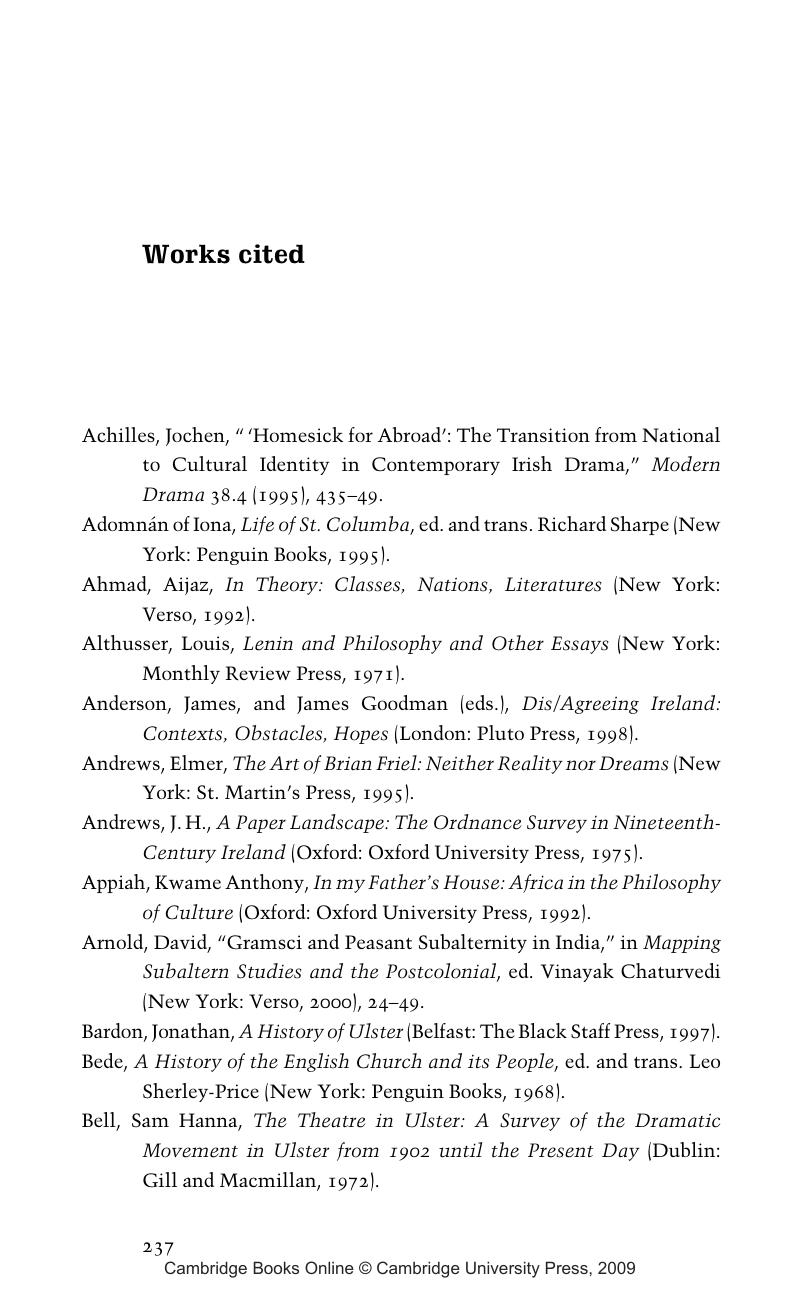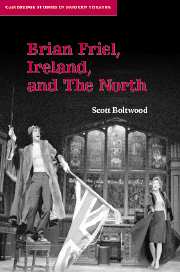Book contents
- Frontmatter
- Contents
- Acknowledgments
- List of abbreviations
- Introduction: Friel, criticism, and theory
- 1 The Irish Press essays, 1962–1963: Alien and native
- 2 The plays of the 1960s: Assessing partition’s aftermath
- 3 The plays of the 1970s: Interrogating nationalism
- 4 Plays 1980–1993: The North
- 5 Plays 1994–2005: Retreat from Ireland and The Home Place
- Notes
- Works cited
- Index
- References
Works cited
Published online by Cambridge University Press: 22 September 2009
- Frontmatter
- Contents
- Acknowledgments
- List of abbreviations
- Introduction: Friel, criticism, and theory
- 1 The Irish Press essays, 1962–1963: Alien and native
- 2 The plays of the 1960s: Assessing partition’s aftermath
- 3 The plays of the 1970s: Interrogating nationalism
- 4 Plays 1980–1993: The North
- 5 Plays 1994–2005: Retreat from Ireland and The Home Place
- Notes
- Works cited
- Index
- References
Summary

- Type
- Chapter
- Information
- Brian Friel, Ireland, and The North , pp. 237 - 252Publisher: Cambridge University PressPrint publication year: 2007

